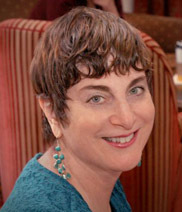 Janice Eidus is a novelist, essayist, short story writer, and private writing coach. Her new novel is The Last Jewish Virgin. Two-time winner of the O. Henry Prize and a Pushcart Prize, she’s published five other books, including the novel, The War of the Rosens, and the short story collection, The Celibacy Club. Her work appears in such leading journals as The New York Times, Jewish Currents, and Lilith, and in such anthologies as Desire: Women Write About Wanting. She lives in Brooklyn, New York and San Miguel de Allende, Mexico. Her website is www.JaniceEidus.com.
Janice Eidus is a novelist, essayist, short story writer, and private writing coach. Her new novel is The Last Jewish Virgin. Two-time winner of the O. Henry Prize and a Pushcart Prize, she’s published five other books, including the novel, The War of the Rosens, and the short story collection, The Celibacy Club. Her work appears in such leading journals as The New York Times, Jewish Currents, and Lilith, and in such anthologies as Desire: Women Write About Wanting. She lives in Brooklyn, New York and San Miguel de Allende, Mexico. Her website is www.JaniceEidus.com.
Q (Meg Pokrass): What books do you feel closest to?
Recently, inspired by my new novel, The Last Jewish Virgin (which I call my “Feminist Fashionista Jewish Vampire Novel”), I’ve been revisiting some of my most beloved vampire literature, including Bram Stoker’s Dracula, a classic that’s long spoken to me in its evocative exploration of class and “other-ness,” with the aristocratic “other,” the Count/vampire serving as the metaphor for the outsider in us all.
I also reread Sheridan Le Fanu’s Carmilla, written in 1872, a lush, erotic, ahead-of-its-time tale of an irresistible lesbian vampire. And Keats’ Lamia, about a seductive, heterosexual vampire enchantress. And Anne Rice’s Interview With A Vampire, to me her finest book — romantic, intelligent, visceral, and unsentimental.
And films, too — I never tire of seeing Frank Langella in John Badham’s Dracula, one of the most sensual, intelligent, misunderstood vampires ever, with his swirling black cape, dark, bedroom eyes, and hungry mouth … And The Hunger, with Catherine Deneuve and Susan Sarandon, which surely has its Sapphic roots in Carmilla.
As for outsider Jewish vampires pre-dating mine in The Last Jewish Virgin, there’s Roman Polanski’s The Fearless Vampire Killers, or Pardon Me, But Your Teeth Are In My Neck … a broadly comic film, a little bit nutty, with a twisted Mel Brooks-meets-the-late Sharon Tate feel to it, if one can imagine such a thing.
My intention while writing The Last Jewish Virgin was to simultaneously honor, subvert, and tweak the traditions and tropes of vampire myth and literature, which has long been a major obsession of mine. I felt as if I were engaging in an ongoing dialogue with all the writers who’ve explored the vampire myth before me, and with all those who’ll explore it after me — as if we’re an endless chain of writers stretching into eternity and beyond.
Why vampires? Well, as my main character, Lilith Zeremba, discovers: The vampire myth is a metaphor for repressed desire. For artistic creation. For madness. For the wish never to be parted from one’s loved ones. For the outcast inside us all. For the monster inside us all. The vampire myth is about boundaries crossed; taboos broken; desires unearthed; about bestowing death and granting life; about being both savior and destroyer.
In The Last Jewish Virgin, I also explore other of my lifelong obsessions — which I’ve explored before in radically different ways in my writing — Jewish identity, mother-daughter relationships, romantic love, the intersection of myth and reality, social justice, the artistic process, and the cultural and social landscapes of New York and Mexico, the two places where I’ve chosen to live, and where I feel most at home.
Do you have a mentor? Do you yourself mentor?
My childhood home was an unhappy one, with serious betrayals, some violence, and extremely “conditional” love — in some cases, no love at all. I rarely felt understood or acknowledged in any healthy way. As a result, I couldn’t get close to “older” writers, a few of whom, I realize now, did try to mentor me. But I didn’t trust anyone I perceived as holding power of any sort over me.
On the other hand, I absolutely love being a mentor, perhaps precisely because I myself wasn’t given guidance as I struggled to form my identity as a writer. Currently, I teach in Carlow University’s Low-Residency MFA Program in Creative Writing, and I’m also a private writing coach. Over the years, I’ve mentored and grown close to numerous writers. Some of my private writing clients have been with me for over a decade, and I’ve watched them fully blossom into deeply committed, publishing writers.
How do you stay creative? What are your tricks to get “unstuck?”
When I feel stuck creatively, it nearly always stems from two things: not getting enough sleep (this happens more and more now that I’m a mom!), and/or not having read anything for a while that I’ve loved. Usually, a half hour nap and finding a good, satisfying novel, story, memoir, or essay to read gets my creative juices flowing again.
The one time I felt truly blocked creatively was in the immediate aftermath of 9-11. My husband and I lived then very near the World Trade Center, and we witnessed the entire nightmare close up. His work at the time was directly involved with counseling victims, families, police, and firefighters who’d been involved. Day by day, our physical and emotional lives were tremendously affected. I was distraught, shell shocked, and unable to write.
Then, about four months after 9-11, the German-born, New York-based cultural critic, Ulrich Baer, invited me to contribute a personal essay to his forthcoming anthology, 110 Stories: New York Writes After September 11, in which he invited 110 New York City writers (the exact number of floors in the World Trade Center) to document their responses to the tragedy. My initial response was to turn him down, and to tell him that I no longer wrote … anything. Instead, I forced myself to sit at my desk. Not right away, but gradually, his request led me back to the written word. The essay I ultimately wrote was about how the events of 9-11 convinced my husband and me that the time had come for us to go forward with our plan to adopt a child and become parents despite our fear and ambivalence about changing our (mostly) contented child-free lives.
You recently moved. How has that been?
Three years ago, when I moved with my husband and daughter from Manhattan to Brooklyn (a borough in New York I’d barely ever set foot in prior to our move), I wrote an essay for The New York Times about the joys and sorrows of a peripatetic life such as mine has been — and continues to be.
In fact, we’re about to move again, this time within the now somewhat more familiar borough of Brooklyn, to a neighborhood known historically for its cultural and racial diversity, as well as for having a bit of an edge — all things that appeal to me.
We’ve been more geographically stable in Mexico, where we’ve owned our home for close to a decade. It seems that the beautiful, old colonial town of San Miguel de Allende, with its rich cultural scene for both Mexicans and expats, and its own edginess, is a perfect fit for us.
Tell us what has been of real surprise/interest in promoting your book.
Blogs! The blogosphere! Social networking!
The War of the Rosens, my novel before The Last Jewish Virgin, was published in 2007. At that time, I knew next to nothing about blogs or Facebook. Back then, I still called myself a Luddite at heart.
Well, that’s totally changed with The Last Jewish Virgin. I’m now active on Facebook, I read blogs regularly, and as a result I’m consequently discovering and rediscovering people (some become “real life” friends and some become “consequential strangers,” to borrow the title of Melinda Blau’s very timely book).
My Facebook friends are quite a varied bunch, and are always recommending writers and books. Recently I found out about Uncle Mame, the biography of Edward Everett Tanner III, who wrote under the pseudonym Patrick Dennis, and was the author of (among many books), Auntie Mame and Genius (a savagely comic novel about an expat movie director, modeled on Orson Welles, who’s hiding out in Mexico from the IRS), from a Facebook friend in L.A., whom I’ve only met once in “real life,” but who, like me, is a great fan of Tanner’s.
What is happening now?
I’m right smack in the midst of promoting The Last Jewish Virgin, so I’m keeping up a hectic pace, doing readings and book signings around New York and elsewhere, including at the Brooklyn Book Festival, KGB, Bowery Poetry Club, Sunny’s Bar in Red Hook, The City Congregation for Humanistic Judaism, the AWP Conference in Washington, and the 510 Reading Series in Baltimore– and I’d like to give a big shout out to all of these venues: THANKS, GUYS, FOR INVITING ME, AND FOR BEING SUCH GREAT SUPPORTERS OF WRITERS AND BOOKS!
In November, I’ll be reading in New Orleans at the Words and Music Festival. I’ve not been back to New Orleans since Katrina, and I feel a strong connection to that city. What it went through was in some ways akin to what New York went through with 9-11. I have very close friends there of long standing with whom I grew even closer in the aftermath of Katrina.
As for my writing, I’m working on a young adult novel set in Brooklyn (although not in Park Slope, I’m happy to say!), and an anthology related to living with, and healing from, illness, and stories and essays as they come to me.
The Fictionaut Five is our ongoing series of interviews with Fictionaut authors. Every Wednesday, Meg Pokrass asks a writer five (or more) questions. Meg is the editor-at-large for BLIP Magazine, and her stories and poems have been published widely. She blogs at http://megpokrass.com.
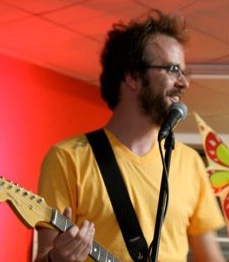
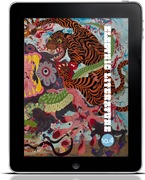
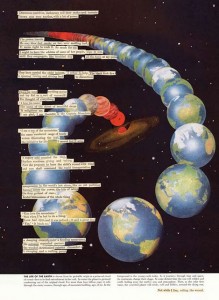 The artwork included in increasingly more and more
The artwork included in increasingly more and more 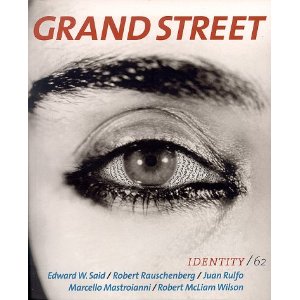
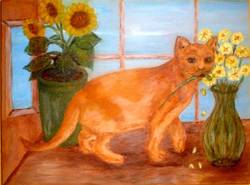
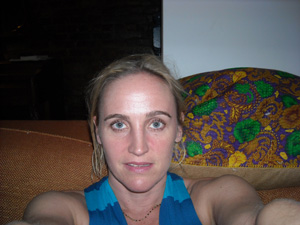

 Rose Metal Press
Rose Metal Press Janice Eidus
Janice Eidus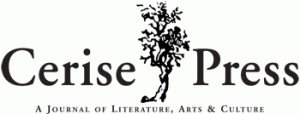
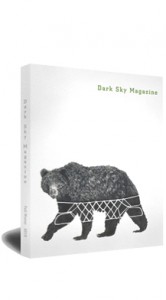

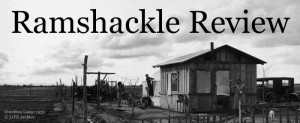 Ramshackle
Ramshackle